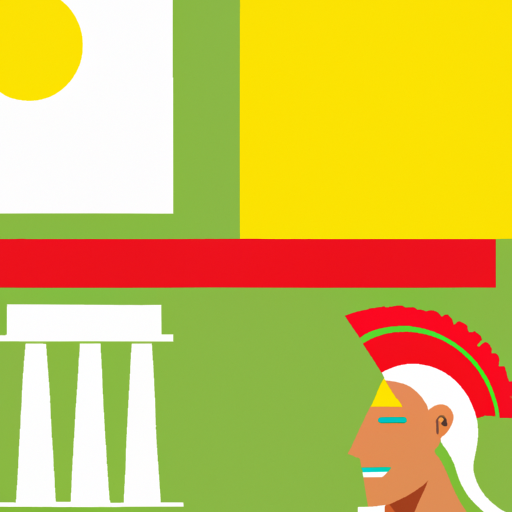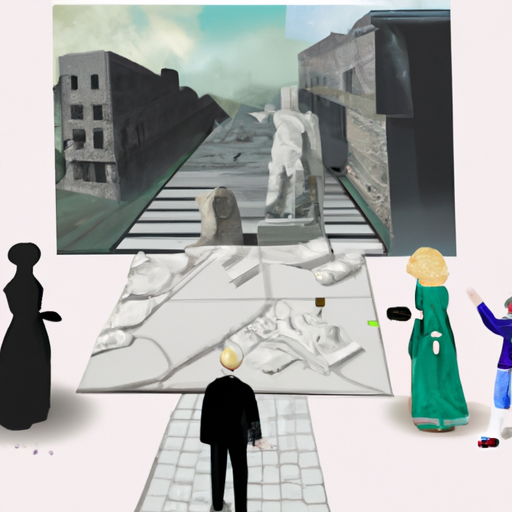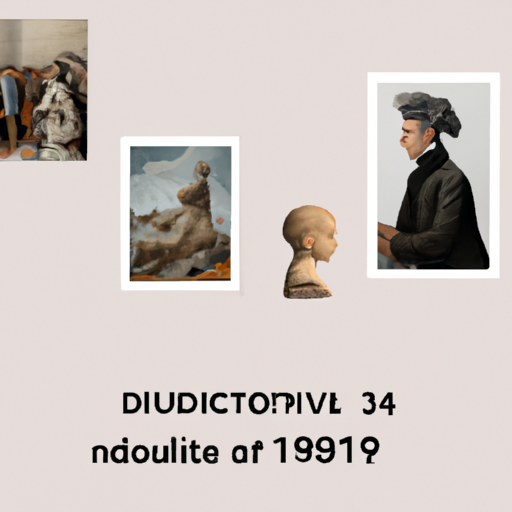History of Egypt: Uncovering the Original Name
Unearth the secrets of times past in Egypt and explore what it was once called! Delve into the depths of antiquity to uncover a hidden realm of knowledge, to find out the original moniker bestowed upon this ancient land. Uncover the mysteries that have been lost in time, and reveal the truth behind this ancient civilization.

Enshrouded in the mists of time, a hidden jewel of secrets lies dormant, awaiting discovery. Kemet, an ancient land dating back to 3000 BC, translated as “black land” from the dark soil that surrounded the Nile River. This place was home to some of the oldest and most influential cultures in human history: Ancient Egyptians, Nubians, and Canaanites.
Powerful pharaohs ruled Kemet, erecting grand monuments such as the Great Sphinx and temples devoted to their gods and goddesses. They also created an advanced hieroglyphic writing system to record their laws and beliefs.
Kemet was not only a major trading center but also a hub for religious practice and cultural exchange. Its legacy is still seen today in language, art, architecture – even our modern lives – providing insight into how this ancient civilization impacted our world.
.
Introduction

An ancient civilization, shrouded in mystery, its original name lost to the ages. Aegyptos – a word of Greek origin – bestowed upon it by those who invaded and conquered. Kemet – ‘black land’ – a fitting description of the fertile soil along the Nile River. Egypt, forever entwined with antiquity and legend.
– The Ancient History of Egypt’s Original Name
An ancient civilization with a long and convoluted history, the land of Kemet has been steeped in mystique for centuries. The name itself is derived from the Ancient Egyptian language, meaning ‘Black Land’, referring to the rich black soil found along the banks of the Nile River where early inhabitants established their settlements and farmed. It was first used by Pharaoh Narmer when he unified Upper and Lower Egypt around 3100 BCE, and it became a powerful symbol for his reign that was used to refer to all of Egypt. Until 332 BCE when Alexander the Great conquered Egypt and renamed it Aegyptus, Kemet remained its official moniker. This eventually evolved into its modern form – Egypt – yet many people still use Kemet today when referencing Ancient Egypt or its culture and religion.
Kemet has also been linked to various spiritual beliefs throughout time, with some African spiritual traditions believing this land once held divine energy and spiritual power that could be accessed by those who knew how. Additionally, it is thought that numerous gods were worshipped in Ancient Egypt under different names but were originally part of one unified pantheon referred to as Kemetu. Nowadays, Kemet is being adopted by Afrocentric movements as a way to reclaim a sense of identity and pride in African heritage. Regardless of one’s outlook on its origin or current usage, there is no denying that Kemet holds an esteemed place in world history – one that should not be forgotten nor overlooked!
– Examining the Naming Evolution of Egypt in Historical Context
Perplexing and bursting with intrigue, the name of Egypt has evolved through the ages. From its ancient roots as Kemet, to its modern day moniker of Misr, delving into this nation’s naming journey can provide an invaluable window into its past. Exploring the various monikers used throughout Egypt’s convoluted history can help us gain insight into how it has been molded by various civilizations over time.
In antiquity, Egypt was known as Kemet, which literally translates to “black land” in reference to the deep black soil along the Nile River Valley. This also serves as a reminder of the country’s African heritage that is still evident today. During the Ptolemaic era (323-30 BC), it was referred to as either Aegyptus or Aigyptos; both words derived from Greek mythology and were employed by other Mediterranean cultures such as Rome and Greece when referring to Egypt.
The Arabic term for Egypt is Misr, which means “country” or “nation” in English. It was adopted during the Arab conquest in 641 AD and remains regularly used among Egyptians and other Arab countries today. The word “Egypt” itself originates from Latin Aegyptus, which derives from Greek Aigyptos; however, it was widely accepted during British colonial rule in 1882.
By studying the evolution of Egypt’s name throughout its long history, we can get a better understanding of how this nation has been shaped by numerous civilizations over time. Through this process we can uncover more about its cultural identity and why particular names have become so significant for Egyptians today.
– Uncovering the Ancient Egyptian Language and Its Impact on the Name of Egypt
The mysteriousness of the ancient Egyptian language and its lingering effects on the name of Egypt is a captivating tale that has been brought to light in recent years. Believed to have been spoken by pharaohs, their courtiers, and other members of their society from around 2200 BCE to 1000 BCE, Middle Egyptian was utilized for writing and documentation.
It is thought that ‘Egypt’ itself stems from the ancient Egyptian word ‘ḥwt-kꜣ-ptḥ’, which translates to ‘the temple of the Ka of Ptah’. The Ka being an aspect of the soul in ancient Egyptian religion and Ptah one of their gods who represented creation and craftsmen. This term became popularized among Greeks, who referred to it as ‘Aigyptos’ or ‘Egyptos’ when they conquered Egypt in 332 BCE.
The impact of this old language can still be seen today in many aspects of modern culture, with words such as Pharaoh, pyramid, hieroglyphics, mummies and papyrus being some examples. Its reach has even extended beyond Egypt with words such as algebra (from al-jabr) and chemistry (from kēmeia) being taken from Arabic translations of Middle Egyptian texts.
Moreover, Middle Egyptian has also had a noteworthy effect on our grasp of history through its written records which grant us invaluable insights into life in Ancient Egypt. By uncovering this ancient language we are able to gain a more profound understanding of this intriguing civilization and its influence on our own culture today.
– How the Greeks Influenced the Original Name of Egypt
Mysterious tales of ages past tell of a far-reaching influence the ancient Greeks had on Egypt, long before their conquest in 332 BCE. A prime example of this is seen in the name of the country itself, Kemet. This name originates from an Egyptian word meaning “black land”.
Legend has it that Zeus had two sons, Poseidon and Helios. Poseidon was said to be king of the sea while Helios was god of the sun. In one myth, they competed for control over Egypt and each created a gift for it: Poseidon crafted a horse and Helios formed a black soil called Kemet. The Egyptians declared that whoever could make their offering grow first would win dominion over Egypt.
Helios emerged victorious by making his present thrive with sunlight and so he became ruler of Egypt. The people adopted his gift as their own and named their nation after it – Kemet – which translates to “black land” or “the black soil”. Over time, this name changed into what we now know as “Egypt”, though many still refer to it as Kemet today.
The impact Greek mythology had on the original name of Egypt stands out as an important reminder that while Greece is usually linked to Western civilization, its culture has also left its mark on other parts of the world throughout history.
– Exploring the Role of Religion in Determining Egypt’s Original Name
Mystical forces have been an integral part of Egypt since time immemorial. From the ancient Egyptians to the present, spiritual beliefs have held sway in deciding the nation’s moniker. In antiquity, Kemet was the original name for Egypt, which translates to “black land”. This title arose from the rich soil of the Nile River valley, seen as a gift from deities. It was believed that divine entities had crafted this land and endowed it with fertility and prosperity.
The people of Egypt saw their gods as responsible for all occurrences in life, including natural disasters and other happenings. Thus, religion was deemed highly important in dictating their destiny; it is through faith that Kemet became the country’s initial name.
Throughout history, several titles have been given to Egypt by different rulers and cultures who wanted to leave an imprint on the region. A few examples include Aigyptos (Greek), Mizraim (Hebrew), Misr (Arabic), and Aegyptus (Latin). Nevertheless, despite these changes in designation over time, Kemet has remained a key aspect of Egyptian culture and is still used today as an alternate name for Egypt.
Religion has always been a core element of Egyptian society and continues to be essential in forming its identity today. By understanding how faith has impacted its past and present-day, we can gain further insight into why this ancient civilization chose Kemet as its first name.
conclusion

Mysteries abound around the ancient land of Egypt, thought to have been birthed many eons ago. Its original moniker, Kemet, is a cryptic reference to its past, translating to ‘black land’ in an archaic language. It is believed that this name was derived from the dark and rich soil of the Nile Valley which enabled the early inhabitants to cultivate crops and sustain their population.
.
Some questions with answers
Q1. What is the original name of Egypt?
A1. The original name of Egypt is Kemet, which means “black land”.
Q2. When did Kemet become known as Egypt?
A2. Kemet became known as Egypt around 3200 BC when Upper and Lower Egypt were united.
Q3. What is the origin of the name Kemet?
A3. The origin of the name Kemet comes from its rich, black soil that was used to cultivate crops.
Q4. Who were the first people to inhabit Kemet?
A4. The first people to inhabit Kemet were the ancient Egyptians, who settled along the Nile River in around 3100 BC.
Q5. How has Egyptian history influenced modern culture?
A5. Egyptian history has had a profound influence on modern culture, from art and architecture to language and literature. It has also had an impact on religious beliefs and practices around the world.




